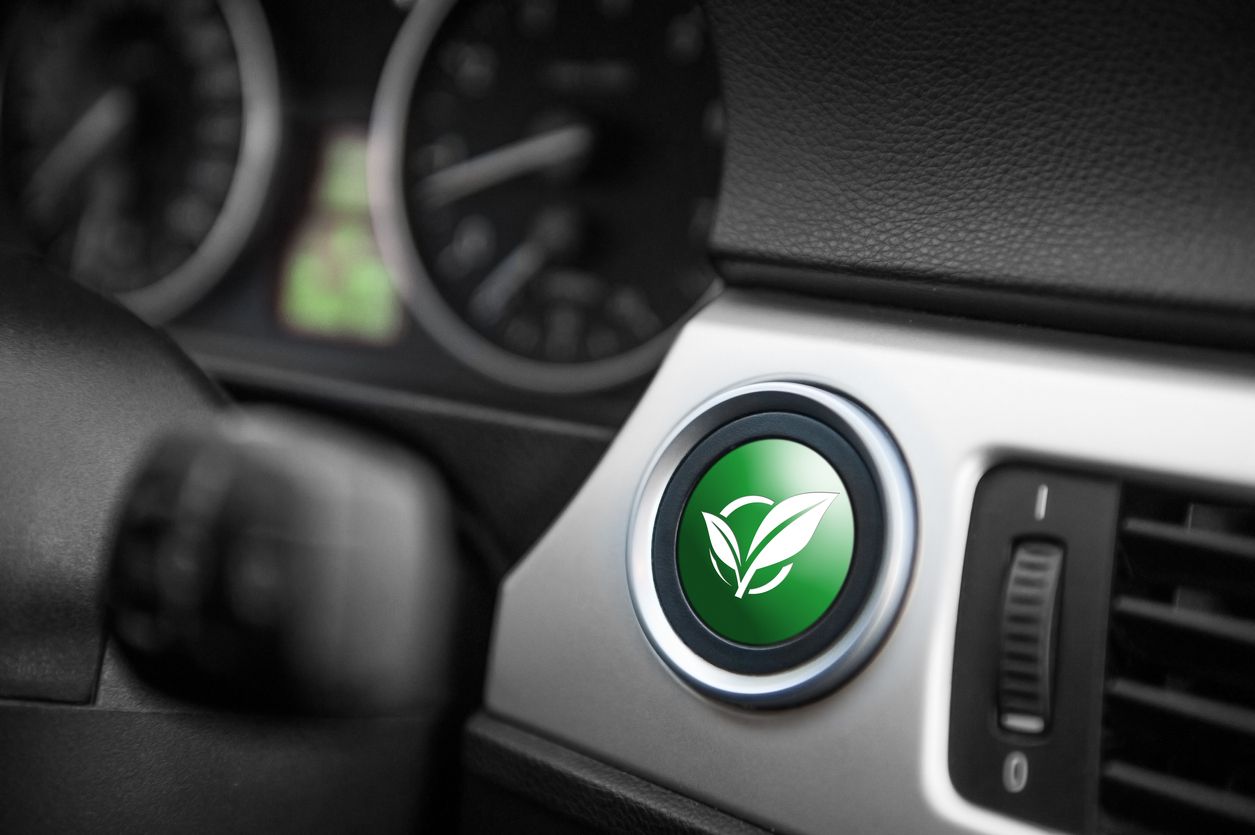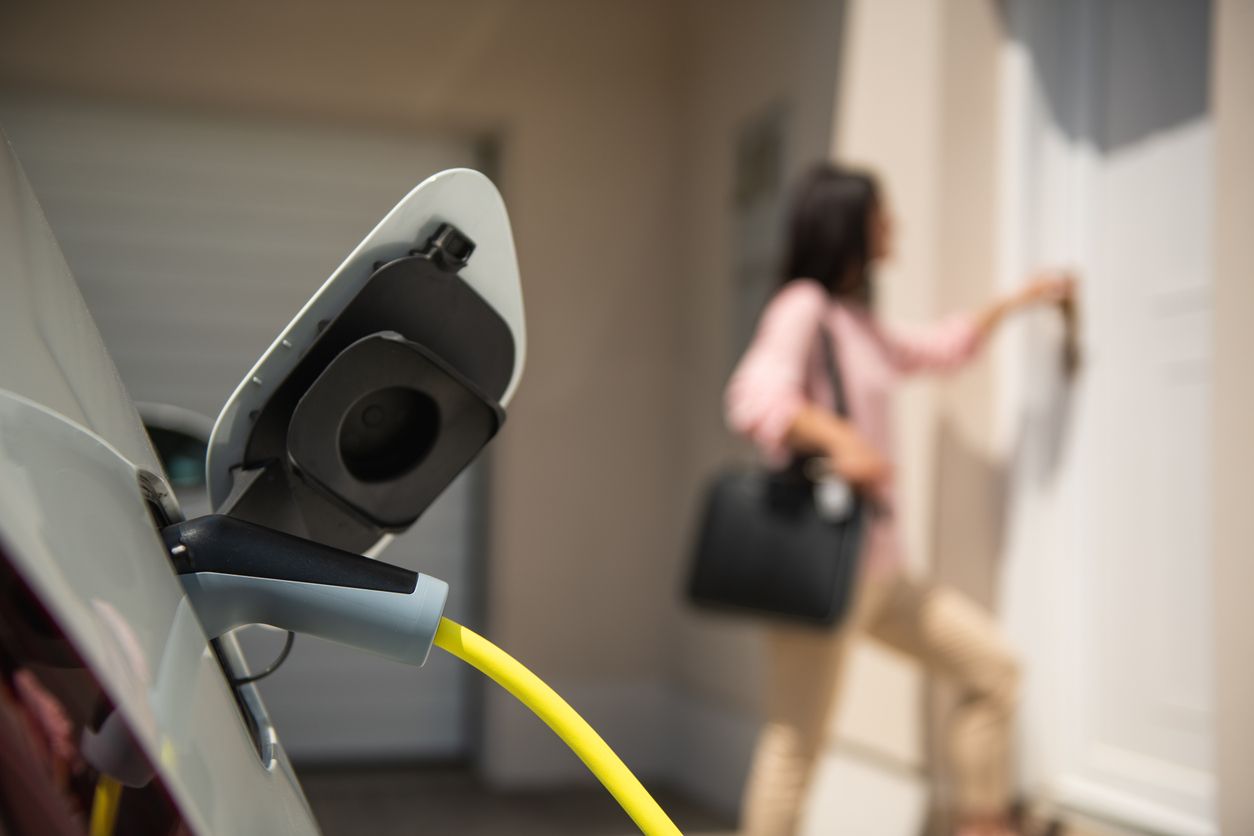Whether you own a hybrid vehicle or are considering purchasing one, it's important to know the advantages and disadvantages of this "green" car option. Read on to get the inside scoop.
What Is a Hybrid Car?
Hybrid vehicles (HEVs) are typically equipped with two different propulsion technologies: an electric motor powered by a rechargeable battery pack and an internal combustion engine (ICE) that’s typically gasoline-powered. While the high voltage battery pack provides the energy to the electric motor(s), which propels the vehicle at lower speeds, the combustion engine provides the torque at higher speeds. There are many differences between electric, hybrid, and standard gas vehicles, but the combination of the electric motor(s) and an ICE are the main distinctions.
Plug-in hybrids (PHEVs) and HEVs differ slightly. An HEV typically utilizes a combination of an ICE and a high voltage electric drive system that helps to provide propulsion or propulsion assist. Regenerative braking helps recharge the battery.
A PHEV is a hybrid electric vehicle whose battery pack can also be recharged by plugging a charging cable into an external electric power source. The propulsion strategy in PHEVs uses the larger battery to drive the vehicle in full electric mode until much of the battery charge is spent. When this happens, the propulsion strategy changes to work like an HEV using the remaining battery charge, the ICE, or both.
Hybrid cars are becoming more common as manufacturing prices decline and as they become more affordable for the average driver. Here are some hybrid car cons and pros to consider when deciding whether this vehicle type is right for you.
Disadvantages of Hybrid Electric Cars
1. High Voltage system repair costs may be more expensive.
Although hybrid vehicles may require less regular maintenance, they can get a little pricey when they need repairs -- especially i fthe issue is your car's high voltage system. Replacing a dead or damaged high voltage battery can cost thousands of dollars depending on the battery type and specific make and model of your ride
In addition to the standard tech installed on ICE vehicles, hybrid vehicles are jam-packed with complex components -- from large high voltage battery packs and inverters to electric motors and improved cooling systems. Not only can these complex mechanisms make hybrid repairs more expensive, but not all mechanics have the equipment and knowledge to fix them properly.
Fortunately, Firestone Complete Auto Care technicians have the tools and training needed to complete everything from general maintenance on hybrid vehicles to high voltage system repairs. Call to verify if your local Firestone Complete Auto Care offers these high voltage system repairs today!
2. They may have a higher upfront cost.
When switching to a hybrid vehicle, you might have to pay a higher amount upfront. Although the sales price for this car type is narrowing, they often remain more expensive than standard ICE alternatives. Fortunately, you may be able to offset this initial expense with tax exemptions and federal incentives, lower running costs, and fuel savings.
3. They may have less power when compared to standard ICE vehicles.
Hybrid vehicles are manufactured for lower CO2 emissions and improved fuel economy but are rarely designed for racecar-like speed and acceleration. Many of the performance enhancements on conventional cars that impact maximum horsepower are often sacrificed.
For example, since hybrid vehicles have two propulsion methods, space and size are typically adjusted. The effect -- hybrid vehicles often have slower top-end acceleration than their conventional contemporaries.
Advantages of Having a Hybrid Car
1. Hybrid cars may be more environmentally-friendly.
Compared to standard gas vehicles, hybrid versions of the same car model offer many "green" benefits. From lower emissions to better gas mileage, you can rest assured you'll be reducing your carbon footprint by making the switch. When weighing the environmental pros and cons of hybrid cars, here are a few of their advantages.
- Greater Fuel Efficiency: Because hybrid cars don't solely rely on their gas engine to run, less fuel may be needed to propel a hybrid vehicle. The effect — improved fuel efficiency.
- Reduced CO2 Emissions: Standard vehicles emit tailpipe emissions that can wreak havoc on the environment. Hybrids have better fuel efficiency and conserve more energy, thus emitting fewer carbon emissions.
- Less Fossil Fuel Dependency: Since hybrid vehicles are able to utilize the high voltage battery pack and electric motor(s) for propulsion, they don't rely on fossil fuels as much as standard gas cars.
- Regenerative Braking: When you apply the brakes while driving most hybrid vehicles, energy is produced and used to recharge your high voltage battery. This action can result in less fuel consumption.
2. They may require less maintenance.
Since hybrid vehicles use a combination of the high voltage battery pack, electric motor, and an ICE to propel the vehicle, you may experience less wear and tear on your car's engine. By offsetting the typical engine wear and tear that can occur with a standard vehicle, less repairs may be needed, and you may have fewer routine maintenance costs overall.
Note: Maintenance costs can vary depending on your hybrid's specific make and model.
3. They may have a higher resale value.
As gas prices rise and hybrid cars grow in popularity, more people are opting for fuel-efficient vehicles. In effect, hybrids have begun to increase in resale value. Should you decide to trade or sell your hybrid car, it's possible that you may receive a higher return on your initial investment when compared to that of your vehicle's standard counterpart.
4. "Range anxiety" may not be a problem.
Range anxiety, or the fear that you won't have enough charge to make it from point A to point B, is a common concern amongst battery-only electric vehicle owners. Currently, charging stations are being built around the U.S, but they may still be few and far between depending on where you live.
Range anxiety is not a common concern amongst hybrid or PHEV drivers. When the high voltage battery runs low on charge in a hybrid vehicle, the car will rely more on the ICE. This automatic switch can be much more comforting since gas stations are more readily available.
Get Hybrid Car Care Services at Firestone
Despite popular belief, you don't have to go to the dealership to get the car care services you need for your hybrid vehicle. Our technicians at Firestone Complete Auto Care are ready for the task! From general maintenance to high voltage system repairs (at select stores), we've got you covered. Visit your nearest location today, and we'll get your ride back to driving like new.



